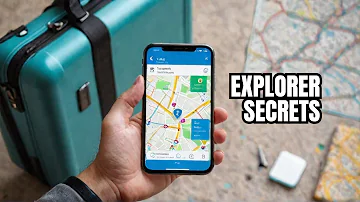Introduction: The Power of Topical Maps in Modern SEO
Are you struggling to outrank competitors or survive Google’s relentless core updates? In today’s SEO landscape, mere keyword targeting isn’t enough. The secret to sustainable rankings and trust lies in building topical authority with comprehensive topical maps. In this guide, you’ll discover how to create topical maps, leverage advanced tools, and implement strategies that will transform your website from an underdog to an industry leader in 2025.
“A study of over 260,000 search results shows a strong correlation between high search rankings and topical authority.”
Let’s break down how you can use topical maps to future-proof your SEO and rise above the competition.
Why Topical Authority Matters for SEO Success
What Is Topical Authority?
- Topical authority means being recognized by search engines as a trusted, comprehensive source on a specific subject.
- Sites with topical authority are more resilient to algorithm changes and are favored by Google for key search queries.
The Google Connection
- Google’s algorithms prioritize well-researched, high-quality content that covers entire topics—not just isolated keywords.
- Building topical authority signals to Google that your site is more than just a casual blog; it’s a resource users can trust.
Key Benefits:
- Greater resistance to algorithm updates
- Improved rankings for competitive and long-tail keywords
- Enhanced trust and credibility in your niche
Step-by-Step: How to Build a Topical Map for Your Website
1. Identify Your Main Topic
Start by defining your website’s central theme. For example, if your site is about nutrition, that becomes your main topic.
2. List Relevant Subtopics
Break down your main topic into logical subcategories.
- For nutrition: low-carb diets, keto diet, Mediterranean diet, etc.
3. Research Keyword Variations
Explore all the ways users might search for information related to each subtopic. Use:
- Google Autocomplete
- "People Also Ask" sections
- Related searches at the bottom of Google’s SERPs
- Quora and Reddit for real user questions
Examples:
- What is a keto diet?
- Keto diet meal plans
- Is keto diet healthy?
- Keto diet side effects
4. Cluster Keywords for Content Structure
Not every keyword needs its own article. Group closely related keywords into unified content pieces, while distinct queries become stand-alone articles.
For example:
- Combine "keto diet meal plan" and "keto 7 day meal plan" into one guide
- Separate "Is keto diet gluten free?" into its own page
5. Use Modern Tools to Accelerate and Visualize
Top Tools for Topical Mapping in 2025
- Surfer Content Explorer & Topic Explorer
- Connect your Google Search Console for tailored topic and keyword suggestions
- Visualize clusters and see existing content mapped to topical hubs
- Quora & Reddit
- Mine forums for trending questions and pain points
- Google SERP Features
- Use autocomplete, People Also Ask, and Related Searches for new topic ideas
"Tools like Surfer’s Topic Explorer show you not just keywords, but how they’re related, forming clusters that drive your content strategy."
Visualizing and Measuring Topical Authority
How the Visualization Works
- Clusters (Hexagons): Each represents a content hub—a group of articles focused on a central theme
- Proximity to Center: The closer, the more relevant and authoritative your site is on that topic
- Color Gradients: Light purple = low keyword difficulty (easy wins); dark purple = high difficulty (competitive topics)
- Concentric Rings: Indicate low, medium, and high topical authority for each cluster
Actionable Insights
- Target clusters in the medium/high rings with light colors for quick authority boosts
- Identify content gaps—clusters with potential that need more content to build authority
- Track progress over time as your topical map updates with new content
Actionable Tips for Building Topical Authority
1. Start with Existing Strengths
Focus first on clusters where your site already has some authority. Expand these with new, high-value content.
2. Address Content Gaps
Find clusters where topical authority is low but keyword difficulty is also low—these are hidden opportunities.
3. Use Keyword Clustering Tools
Don’t manually organize hundreds of keywords. Let tools group them into logical content hubs and clusters.
4. Create Interconnected Content
Link related articles together to reinforce topical relationships and boost authority signals.
5. Monitor & Adapt
Regularly revisit your topical map and update your strategy as new opportunities emerge and old gaps are filled.
Pro Tip:
"Instead of randomly producing content, use a topical map to strategically create articles that support each other and boost your overall authority."
Frequently Asked Questions: Topical Maps & Authority
Q: How often should I update my topical map?
- Review quarterly or after major content pushes. SEO tools will dynamically update your map as you add new articles.
Q: Do I need to write content for every keyword?
- No. Group similar keywords into comprehensive articles, and only separate distinctly different queries into their own posts.
Q: What’s the best tool for topical mapping in 2025?
- Surfer’s Topic Explorer remains leading-edge, but keep an eye on new AI-driven SEO platforms evolving every year.
Conclusion: Unlock Lasting SEO Success with Topical Maps
To dominate SEO in 2025 and beyond, you must move beyond isolated keywords. Building topical authority with a structured topical map is your best strategy for long-term rankings, resilience against algorithm updates, and earning Google’s trust.
- Define your main topics and subtopics
- Research and cluster keywords
- Leverage advanced tools for visualization and action
- Fill content gaps and connect your articles
Ready to elevate your SEO? Start building your topical map today and watch your website become the authority your audience—and Google—trusts.
Take Action Now
- Audit your existing content for topical gaps
- Try Surfer’s Topic Explorer or a comparable tool
- Develop your topical map and content calendar for the next quarter
Need help? Explore our in-depth guides or contact our SEO experts for a personalized strategy session.




